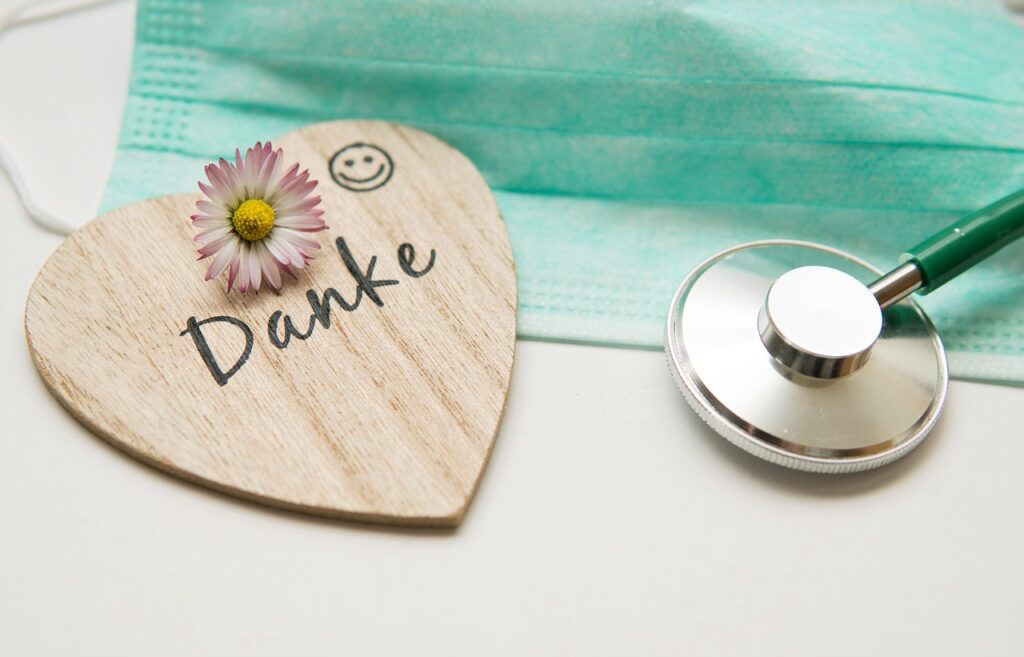Couples Rehab FAQs
Addressing Common Questions About Couples Rehab
Introduction
Addiction can be a daunting challenge, especially when both partners in a relationship are struggling. Couples Rehabs offers a unique approach to treatment that focuses on helping both individuals and their relationship heal. This comprehensive guide addresses common questions about couples rehab, providing valuable information for couples considering this path, as well as for families, therapists, and interventionists seeking to understand more about the process.
Table of Contents
- Program Basics
- What is couples rehab?
- How does couples rehab differ from individual rehab?
- What types of programs are available?
- Cost and Insurance
- How much does couples rehab cost?
- Does insurance cover couples rehab?
- Are there financing options?
- Treatment Methods
- What therapies are used in couples rehab?
- Is medication-assisted treatment available?
- Effectiveness and Success
- How effective is couples rehab?
- What are the success rates?
- Relationship Dynamics
- How does couples rehab address relationship issues?
- How can couples rebuild trust and intimacy?
- Aftercare and Support
- What aftercare programs are available for couples?
- How can families support a couple in recovery?
- Logistics and Practicalities
- How long does couples rehab last?
- How do we find a reputable program?
- What should we expect during the process?
- FAQ Section
- Conclusion
1. Program Basics
What is couples rehab? Couples rehab is a specialized form of addiction treatment designed for couples who are struggling with substance use disorders. It provides an opportunity for both partners to receive treatment simultaneously, addressing their individual needs as well as the dynamics of their relationship.
How does couples rehab differ from individual rehab? Couples rehab differs from individual rehab in that it focuses on the relationship as a whole. While individual rehab addresses the needs of a single person, couples rehab incorporates therapy sessions that involve both partners, helping them work through issues related to their addiction and relationship.
What types of programs are available? There are several types of programs available for couples rehab:
- Inpatient Rehab: This involves residential treatment where couples stay at a facility for a certain period.
- Outpatient Rehab: Couples attend treatment sessions during the day but live at home.
- Intensive Outpatient Programs (IOP): These programs offer more intensive treatment than standard outpatient rehab, with more frequent sessions.
- Partial Hospitalization Programs (PHP): These provide a higher level of care than IOPs, often including medical monitoring.
2. Cost and Insurance
How much does couples rehab cost? The cost of couples rehab can vary widely depending on the type of program, the duration of treatment, and the facility. On average, inpatient rehab can cost between $6,000 and $30,000 for a 30-day program. Outpatient programs are generally less expensive, ranging from $1,000 to $10,000 for a 90-day program.
Does insurance cover couples rehab? Many insurance plans do cover addiction treatment, including couples rehab. It’s essential to check with your insurance provider to understand what is covered and any out-of-pocket expenses you might incur.
Are there financing options? Yes, there are financing options available for couples rehab. Some facilities offer payment plans, sliding scale fees based on income, or even scholarships for those who qualify. Additionally, there are financing companies that specialize in loans for addiction treatment.
3. Treatment Methods
What therapies are used in couples rehab? Couples rehab typically includes a variety of evidence-based therapies, such as:
- Cognitive Behavioral Therapy (CBT): Helps individuals identify and change negative thought patterns.
- Dialectical Behavior Therapy (DBT): Focuses on emotional regulation and interpersonal effectiveness.
- Family Therapy: Involves family members in the treatment process.
- Motivational Interviewing: Enhances an individual’s motivation to change.
- Couples Counseling: Addresses relationship dynamics and communication issues.
Is medication-assisted treatment available? Yes, medication-assisted treatment (MAT) is often available in couples rehab programs. MAT combines medications like methadone, buprenorphine, or naltrexone with behavioral therapies to help manage withdrawal symptoms and reduce cravings.
4. Effectiveness and Success
How effective is couples rehab? The effectiveness of couples rehab can vary depending on the specific program and the individuals involved. However, research has shown that couples who undergo rehab together often experience better outcomes in both addiction recovery and relationship satisfaction compared to those who undergo treatment separately.
What are the success rates? Success rates can vary, but some studies suggest that couples rehab can lead to improved recovery outcomes. For example, one study found that couples who participated in Behavioral Couples Therapy (BCT) had higher rates of abstinence and relationship satisfaction compared to those who did not participate in couples-focused treatment.
5. Relationship Dynamics
How does couples rehab address relationship issues? Couples rehab addresses relationship issues through therapy sessions that focus on improving communication, resolving conflicts, and rebuilding trust. Therapists work with couples to identify and address patterns of behavior that may contribute to their addiction and relationship problems.
How can couples rebuild trust and intimacy? Rebuilding trust and intimacy takes time and effort. In couples rehab, therapists help couples develop skills for honest communication, emotional expression, and conflict resolution. Activities like joint therapy sessions, recreational activities, and assignments that promote bonding and understanding can also aid in rebuilding trust and intimacy.
6. Aftercare and Support
What aftercare programs are available for couples? After completing a couples rehab program, ongoing support is crucial for maintaining sobriety and relationship health. Aftercare programs may include:
- Continuing Therapy: Ongoing individual and couples counseling sessions.
- Support Groups: Groups like Alcoholics Anonymous (AA) or Narcotics Anonymous (NA) that provide peer support.
- Sober Living Homes: Structured living environments that support sobriety.
- Relapse Prevention Programs: Programs focused on identifying triggers and developing coping strategies.
How can families support a couple in recovery? Families can support a couple in recovery by:
- Encouraging participation in aftercare programs.
- Providing a supportive and non-judgmental environment.
- Educating themselves about addiction and recovery.
- Attending family therapy sessions if available.
- Encouraging open and honest communication.
7. Logistics and Practicalities
How long does couples rehab last? The duration of couples rehab can vary based on the program and the needs of the couple. Inpatient programs typically last 30, 60, or 90 days, while outpatient programs can last several months to a year. The length of treatment is often tailored to the couple’s specific situation and progress in recovery.
How do we find a reputable program? To find a reputable couples rehab program, consider the following steps:
- Research Online: Look for programs with positive reviews and accreditation from reputable organizations.
- Ask for Referrals: Seek recommendations from healthcare providers, therapists, or friends who have experience with addiction treatment.
- Verify Credentials: Ensure the facility and staff are licensed and accredited.
- Visit the Facility: Tour the facility to assess the environment and ask questions about the program.
What should we expect during the process? During couples rehab, you can expect:
- Intake Assessment: A thorough evaluation of your needs and goals.
- Individual and Joint Therapy Sessions: Regular therapy sessions to address individual and relationship issues.
- Educational Workshops: Sessions on addiction, coping skills, and relationship dynamics.
- Recreational Activities: Activities designed to promote bonding and relaxation.
- Aftercare Planning: Developing a plan for ongoing support and recovery after treatment.
8. FAQ Section
Q1: What is couples rehab? A1: Couples rehab is a specialized form of addiction treatment designed for couples who are struggling with substance use disorders. It provides an opportunity for both partners to receive treatment simultaneously, addressing their individual needs as well as the dynamics of their relationship.
Q2: How does couples rehab differ from individual rehab? A2: Couples rehab differs from individual rehab in that it focuses on the relationship as a whole. While individual rehab addresses the needs of a single person, couples rehab incorporates therapy sessions that involve both partners, helping them work through issues related to their addiction and relationship.
Q3: What types of programs are available for couples rehab? A3: There are several types of programs available for couples rehab, including inpatient rehab, outpatient rehab, intensive outpatient programs (IOP), and partial hospitalization programs (PHP).
Q4: How much does couples rehab cost? A4: The cost of couples rehab can vary widely depending on the type of program, the duration of treatment, and the facility. On average, inpatient rehab can cost between $6,000 and $30,000 for a 30-day program, while outpatient programs range from $1,000 to $10,000 for a 90-day program.
Q5: Does insurance cover couples rehab? A5: Many insurance plans do cover addiction treatment, including couples rehab. It’s essential to check with your insurance provider to understand what is covered and any out-of-pocket expenses you might incur.
Q6: Are there financing options for couples rehab? A6: Yes, there are financing options available for couples rehab. Some facilities offer payment plans, sliding scale fees based on income, or even scholarships for those who qualify. Additionally, there are financing companies that specialize in loans for addiction treatment.
Q7: What therapies are used in couples rehab? A7: Couples rehab typically includes a variety of evidence-based therapies, such as Cognitive Behavioral Therapy



















Recent Comments